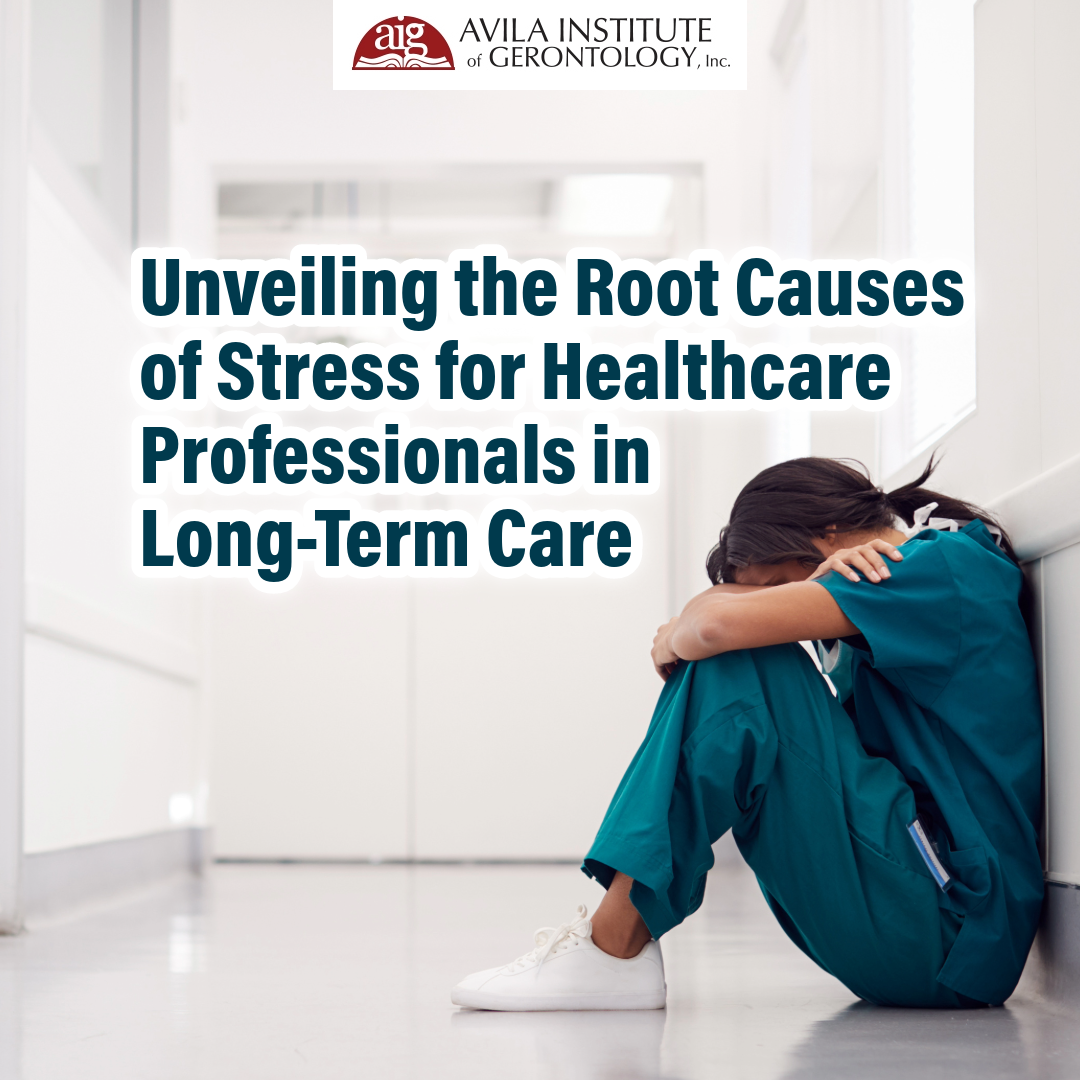
In the dynamic world of healthcare, professionals in long-term care facilities often find themselves facing unique challenges that can lead to stress and burnout. While providing care for residents is a noble and rewarding endeavor, it's crucial to recognize the underlying factors contributing to stress among healthcare workers in these settings.
By identifying and addressing these root causes, we can create a healthier and more supportive work environment for both staff and residents.
- Pressure: Long-term care providers operate under a relentless gaze, with residents, families, auditors, colleagues, and management scrutinizing their every move. This incessant visibility and scrutiny create an environment where criticism becomes commonplace. Despite their best intentions, healthcare providers may find themselves feeling unjustly criticized, fostering a sense of disillusionment and frustration.
- Heavy Workload: Balancing the needs of multiple residents, administering medications, assisting with daily activities, and handling emergencies can be overwhelming, especially when coupled with administrative tasks and documentation requirements. The constant pressure to deliver high-quality care within limited time frames can lead to fatigue and burnout among staff members.
- Emotional Demands: Caring for residents in long-term care often involves forming deep emotional connections with them and their families. Witnessing the decline in health, coping with end-of-life care, and dealing with challenging behaviors can take a toll on healthcare professionals emotionally. The emotional demands of the job, combined with the need to maintain professionalism and empathy, can lead to compassion fatigue and psychological distress.
- Staffing Shortages: Staffing shortages are a persistent issue in many long-term care facilities, exacerbating the workload and increasing stress levels for healthcare professionals. Working short-staffed not only affects the quality of care but also puts additional strain on existing staff members who must pick up the slack. Constantly being understaffed can lead to feelings of frustration, resentment, and burnout among healthcare workers.
- Lack of Resources and Support: Healthcare professionals in long-term care often face challenges due to limited resources and support systems. Whether it's inadequate staffing, insufficient training, or outdated equipment, these deficiencies can hinder the delivery of quality care and contribute to feelings of frustration and helplessness among staff members. Without proper support from management and access to necessary resources, healthcare professionals may struggle to meet the needs of residents effectively.
- Workplace Culture and Communication: The culture of a long-term care facility and the quality of communication among staff members can significantly impact stress levels. A supportive and collaborative work environment where staff feel valued, respected, and empowered is essential for reducing stress and fostering job satisfaction. However, a toxic work culture, lack of communication, and poor leadership can lead to increased tension and dissatisfaction among healthcare professionals.
- Home Environment: Moreover, stress permeates beyond the confines of the workplace, infiltrating the sanctuary of home and family life. External pressures from personal relationships and obligations compound the burden on healthcare providers, amplifying their stress levels.
Identifying the root causes of stress for long-term care professionals is crucial for implementing effective strategies to address these issues. By addressing factors such as heavy workloads, emotional demands, staffing shortages, lack of resources, and workplace culture and more, we can create a more supportive and sustainable environment for long-term care staff. Investing in staff training, promoting work-life balance, improving communication, and providing adequate resources and support are essential steps towards mitigating stress and ensuring the well-being of both staff and residents in long-term care facilities.
Follow Us for Tips and Information
Be sure to follow us on Facebook and Instagram for the latest tips and information on dementia for families, long-term care healthcare professionals, and religious communities.
Do you need help taking care of your number one resource, your employees?
The Avila Institute of Gerontology offers invaluable assistance to long-term care facilities by providing comprehensive staff training programs designed to address the multifaceted challenges faced by healthcare professionals in this demanding field.
Avila Institute recognizes that by identifying and addressing these root causes, a healthier and more supportive work environment can be cultivated for both staff and residents. Through targeted training initiatives, Avila equips healthcare professionals with the skills and resources necessary to navigate the complexities of their roles with resilience and efficacy.
By focusing on promoting work-life balance, improving communication, and fostering a supportive workplace culture, Avila empowers staff to mitigate stress, enhance job satisfaction, and ultimately deliver higher quality care to residents. Investing in such training initiatives is essential for creating a sustainable and compassionate long-term care environment where the well-being of both staff and residents is prioritized.
Interested in working with us, use our contact form to reach out.
